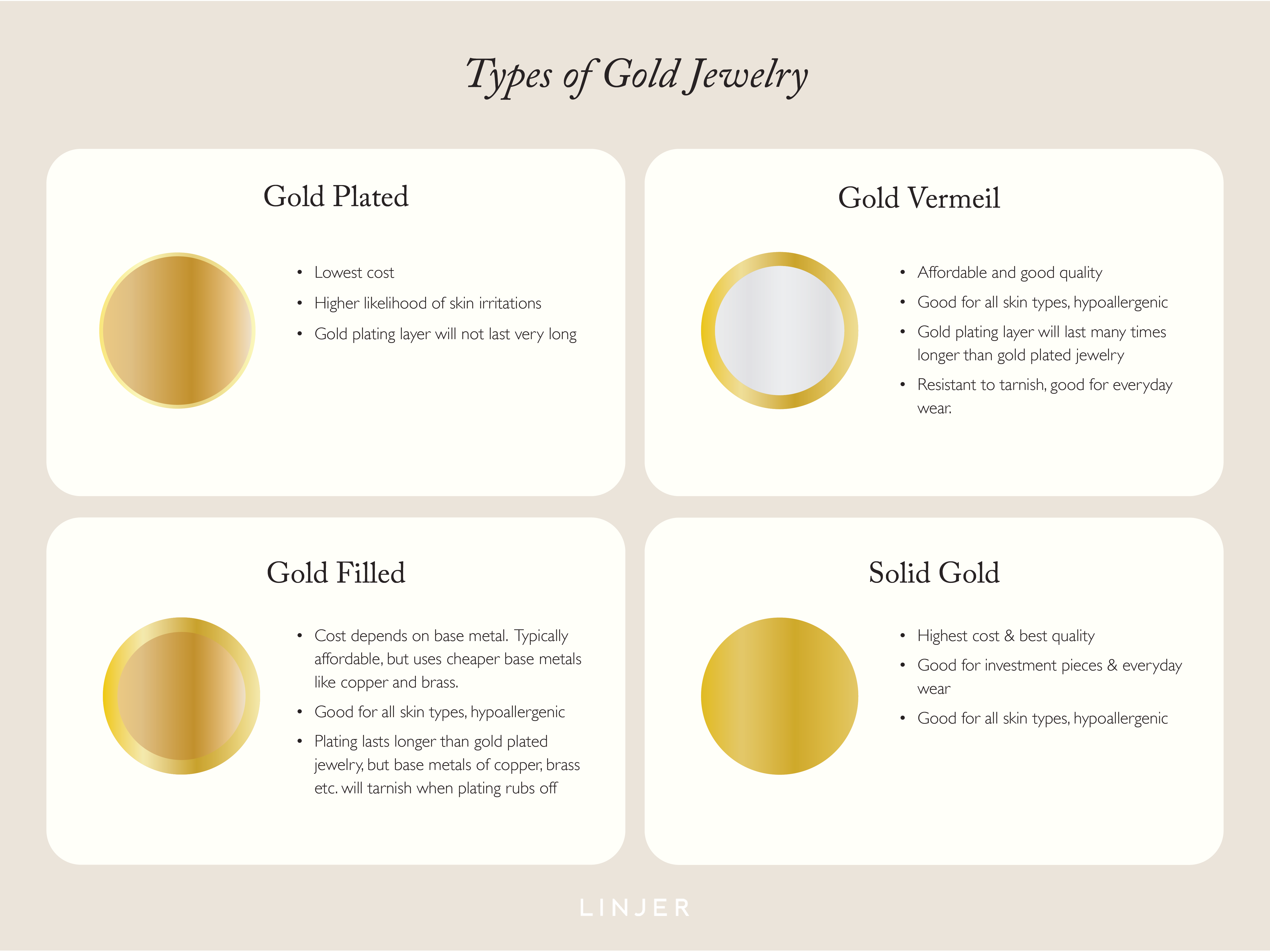Is Gold Plated Real Gold? What You Must Know Before Buying
Understanding Gold Plating
Gold plating is a process where a layer of gold is applied to the surface of a base metal, such as copper or silver, through electroplating. This creates the appearance of gold without the high cost of solid gold items. However, it’s essential to understand that gold-plated items contain only a thin layer of gold on the surface, which can wear off over time.
Considerations for Gold Plated Jewelry
When purchasing gold-plated jewelry, it’s vital to consider the thickness of the gold plating. The Federal Trade Commission (FTC) specifies that items labeled as gold plated should have a minimum thickness of at least 0.175 microns of gold. Be wary of items with thinner plating, as they may wear off more quickly, revealing the base metal underneath.
The Difference Between Gold Plating and Solid Gold
Solid gold items are made entirely of gold, typically in varying degrees of purity indicated by karats. For example, 24-karat gold is 99.9% pure gold, while 18-karat gold is 75% gold mixed with other metals for added durability. In contrast, gold-plated items consist of a base metal covered with a thin layer of gold, usually less than 1 micron thick.
Karat Comparison
Solid gold items are often stamped with a karat mark to indicate their purity level, such as 14K or 18K. On the other hand, gold-plated items may be labeled as “GP” or “gold overlay,” signifying that they are not solid gold but rather gold-plated.

This image is property of cdn.shopify.com.
Factors Affecting the Quality of Gold Plating
Several factors can impact the quality and longevity of gold plating on items. These include the base metal used, the thickness of the gold layer, the plating method employed, and the wear and tear the item experiences over time.
Base Metal Influence
The base metal used in gold-plated items can affect their overall quality. Some common base metals include copper, silver, or brass. Higher-quality base metals can result in more durable gold-plated items that are less prone to tarnishing or discoloration.
Verifying the Gold Content of Jewelry
If you’re unsure whether a piece of jewelry is solid gold or gold-plated, there are a few ways to verify its gold content. One option is to look for a hallmark or stamp on the item indicating its gold purity level. Alternatively, you can take the jewelry to a reputable jeweler for testing to determine its gold content accurately.
Testing Methods
Jewelers may use various testing methods to determine the gold content of jewelry, such as acid testing, electronic testing, or X-ray fluorescence analysis. These techniques can help differentiate between solid gold and gold-plated items, providing you with the confidence to know what you’re purchasing.

This image is property of cdn.shopify.com.
Pros and Cons of Gold-Plated Items
Gold-plated items offer a more affordable alternative to solid gold pieces, allowing you to enjoy the look of gold without the high price tag. However, it’s essential to weigh the pros and cons of gold-plated items before making a purchase decision.
Pros
- Affordability: Gold-plated items are typically more cost-effective than solid gold jewelry.
- Variety: Gold plating allows for a wide range of designs and styles to choose from.
- Wearability: Gold-plated items can be worn daily without the risk of significant financial loss if damaged or lost.
Cons
- Limited Durability: Gold plating can wear off over time, especially with frequent use or exposure to water and chemicals.
- Allergies: Some individuals may be sensitive to base metals used in gold-plated items, leading to skin reactions.
Care and Maintenance of Gold-Plated Jewelry
To prolong the life of your gold-plated jewelry and maintain its appearance, it’s essential to follow proper care and maintenance practices. This can help prevent premature wear and ensure that your pieces retain their beauty for an extended period.
Cleaning Tips
Avoid exposing gold-plated items to harsh chemicals, abrasive cleaners, or excessive moisture, as these can accelerate the wearing off of the gold layer. Instead, use a soft cloth to gently polish your jewelry and store it in a cool, dry place when not in use.

This image is property of cdn.shopify.com.
Conclusion
In summary, gold-plated items offer an affordable way to enjoy the look of gold jewelry without the high cost of solid gold pieces. By understanding the differences between gold plating and solid gold, as well as the factors affecting the quality of gold-plated items, you can make informed decisions when purchasing jewelry. Remember to consider the thickness of the gold layer, the base metal used, and proper care practices to ensure that your gold-plated items maintain their beauty and longevity.
If you have any questions, please don’t hesitate to contact us at info@fastcashdc.com



